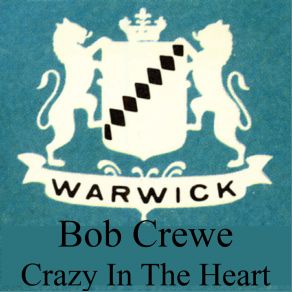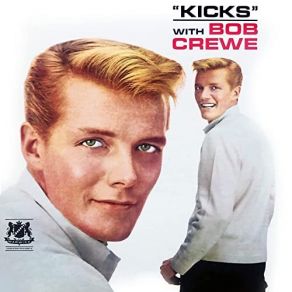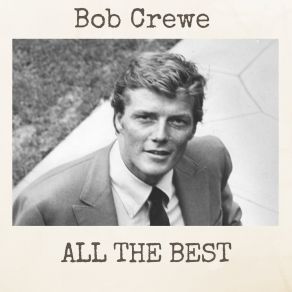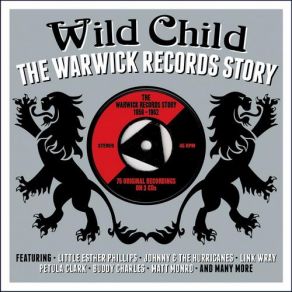Bob Crewe
Wikimp3 information about the music of Bob Crewe. On our website we have 5 albums and 10 collections of artist Bob Crewe. You can find useful information and download songs of this artist. We also know that Bob Crewe represents Pop genres.
Biography
[Edit]One of the most successful pop/rock producers of the 1960s, Bob Crewe is primarily known for his work with the Four Seasons, many of whose hits he also had a hand in writing. Crewe also got hits with Diane Renay, Mitch Ryder, Freddy Cannon, and several others. He also made some solo recordings, although he only got a big hit with one, the 1966 instrumental "Music to Watch Girls By." Crewe entered the music business as both a singer, making numerous obscure recordings from the '50s onwards, and songwriter. He rose to prominence with work for Philadelphia-area labels, writing and producing, with partner Frank Slay, the Rays' classic doo wop hit "Silhouettes." The Crewe-Slay team became partners in the Swan label, where Crewe was involved in writing and production for early hits by Freddy Cannon ("Tallahassee Lassie" being the biggest) and Billy & Lillie ("La Dee Dah"). The Crewe sound was early rock & roll, diluted through a pop filter for a white teenage market, but with Cannon's hits especially retaining some raucousness. Hits like "Tallahassee Lassie" demonstrated Crewe's talents at getting tracks with stomping rhythms and hand claps, which he would build upon in a more artful fashion in his sides with the Four Seasons.
Crewe signed the Four Seasons in the early '60s, at first using them as backup vocalists for other artists. One of the decade's more enduring producer/artist partnerships took off when a single done by the group under their own name, "Sherry," made number one in 1962. Although this was written by Four Seasons member Bob Gaudio, the equally massive follow-up, "Big Girls Don't Cry," was penned by Gaudio and Crewe. Gaudio and Crewe would write many of the Seasons' big '60s hits — including "Walk Like a Man," "Ronnie," "Rag Doll," "Save It for Me," and "Silence Is Golden" — although they also wrote separately for the group. Crewe's productions for the Four Seasons (and some of his other artists) always boasted thick but cleanly recorded percussion, sometimes in an almost military cadenced stomp (as on "Walk Like a Man" and "Rag Doll"). Also crucial to the balance of the Four Seasons' arrangements were their sophisticated harmonies, in which both Frankie Valli's falsetto and the backup vocalists had a lot of presence. It's sometimes forgotten that Crewe's Four Seasons discs also adeptly incorporated imaginative touches of other instruments that made them stand out from the pack of other pop/rock records in the early and mid-'60s. For instance, there were the heavenly glissandos of "Candy Girl," the tremoloed guitars of "Silence Is Golden," the bells on "Dawn," the space-age organs and galloping rhythms of "Save It for Me" (which perhaps owe something to Joe Meek's production of the Tornados' "Telstar"), and the sad harmonica on "Big Man in Town."
Income from the Four Seasons' sales and songwriting was probably enough to keep Crewe comfortable for much of the '60s, but he was constantly working with other artists as well, for whom he also often assumed both production and songwriting hats. Diane Renay had a one-shot girl group-styled hit with "Navy Blue," and a lesser-known gem, "Watch Out Sally." Crewe worked extensively with another decent girl group-type singer, Tracey Dey, without getting a big hit; on "Watch Out Sally" and Dey's "I Won't Tell," you can really hear the Four Seasons influence in the assertive drum-stomp-hand-clap patterns. Crewe produced some sides for Lesley Gore, but just after her best work, which had been overseen by Quincy Jones, Crewe did get a substantial hit with Gore, "California Nights."
In the mid-'60s, Crewe formed his own New Voice and DynoVoice labels, which had hits by the Toys ("A Lover's Concerto"), Norma Tanega ("Walkin' My Cat Named Dog"), and Mitch Ryder & the Detroit Wheels. With Ryder, Crewe successfully took on the harder-driving sound of mid-'60s rock and soul, as usual getting in on some of the songwriting credits, as on the hit "Sock It To Me — Baby!" Crewe, though, is sometimes cited as a factor in separating Ryder from the Wheels for a solo career, during which Ryder was given some inappropriately pop material, and his career ran aground.
In early 1967, Crewe himself finally had a big hit, "Music to Watch Girls By," credited to the Bob Crewe Generation. A prototypical easy listening/pop crossover instrumental with a '60s, party, go-go beat and Herb Alpert-like brass, it's still easily recognized today, and was ideal for use as background music for radio and television links. In the late '60s, he was behind another label, Crewe, whose biggest smash was Oliver's ballad "Jean," a considerable distance from the pop/rock with which he was most strongly identified in years past. Crewe's glory days passed after the '60s; his most significant achievement, and one which many wouldn't suspect to be his work, was co-writing Labelle's monster soul hit, "Lady Marmalade," in the mid-'70s.
Title: Barbarella (Original Soundtrack)
Artist: Charles Fox, Bob Crewe, Bob Crewe Generation, The Glitterhouse
Genre: Theatre/Soundtrack
Collections
Title: Teen Hits From the Rockin 50's Volume 10
Genre: Hip Hop/R&B, Soul, Pop, Teen Pop
Title: Rare 45's Vol. 1 (CD3)
Title: Wild Child - The Warwick Records Story (CD1)
Genre: Rock, Rock & Roll, Rockabilly, Pop, Pop Rock
Title: Wild Child - The Warwick Records Story (CD2)
Genre: Rock & Roll, Rockabilly, Pop
Title: Wild Child - The Warwick Records Story (CD3)
Genre: Rock & Roll, Rockabilly, Pop
Title: Mojo Jazz Present: Family Affair Chapter One
Genre: Jazz, Theatre/Soundtrack, Funk, Bossanova
Title: Hot Rockin' Baby
Genre: Rock & Roll, Pop Rock
















